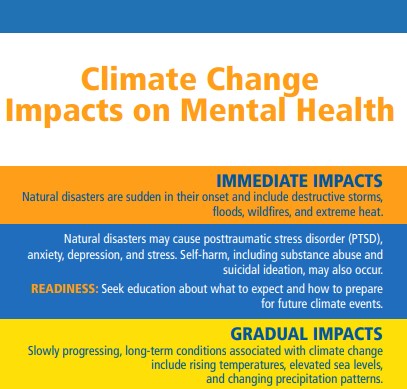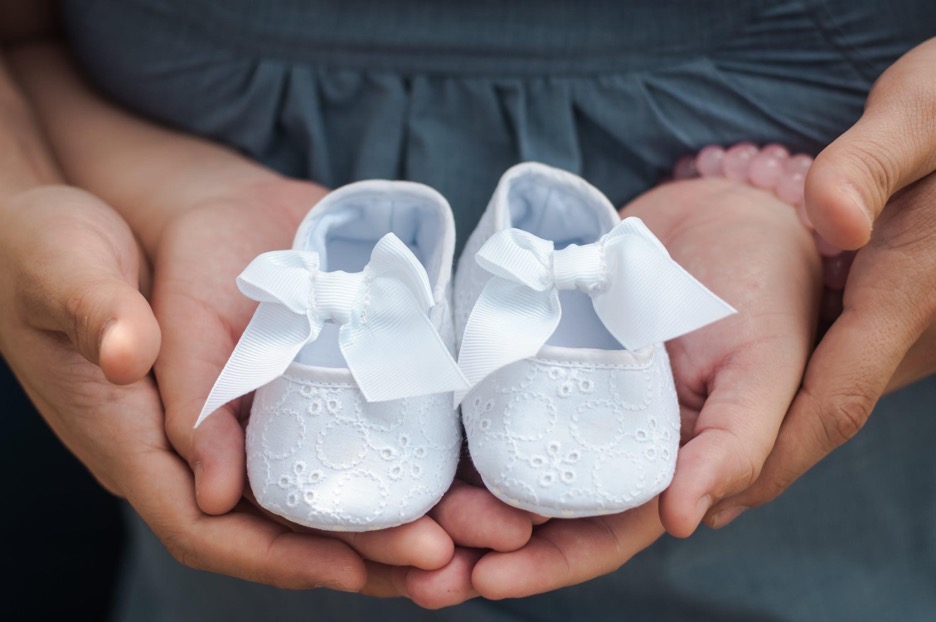Climate change has a lot to do with Mental Health & wellbeing. Never do we realize that the stress and anxiety we’re facing in our everyday lives is about the implications of climate change.
Does this mean that we’ve to mend the climate in order to be mentally sound & peaceful? May be yes! We’ll dig this in deep.
The connection between Climate Change & Mental Health
Earth’s average temperature is consistently rising. It’s around 1.5 Degrees Fahrenheit more in this Century as compared to the past one. The changes & irregularity of seasons, a gradual rise in the number of floods, wildfires, heatwaves, storms, droughts, rising sea levels, etc. are the signs we must take seriously.
Now, these environmental conditions affect us socially, agriculturally & economically. It is having harmful effects on our physical and psychological health. Thus, we’re getting endangered. The more we realize this, the more we should be compelled to take action.
“I think people realize that if you’re going to talk about health, you have to talk about mental health,” – Daniel Dodgen (Ph.D., A clinical psychologist at the U.S)

Image Source: Google
Facts & Figures
- Over 40 Million+ Adults in the U.S. are suffering from mental illness.
- Natural disaster victims are at increased risk of depression, anxiety, suicide, PTSD, etc.
- Adverse mental health effects are likely to bother 25-50% of people exposed to an extreme weather disaster.
- Around 54% of adults and 45% of children undergo depression after a natural disaster.
- The suicide rate almost doubled after a record drought in the 1980s. 900+ farmers committed suicide in the Upper Midwest.
Indirect Exposure of Climate Change & its Effect on Mental Health
As discussed above, we’ve related climate change and the associated impacts on mental health after a natural disaster. However, we don’t have to undergo natural disasters to understand the consequences of climate change on mental health & wellness.
We’re often left with a ‘?’ as to where the world is going as we hear the news reflecting topics like natural disasters. Many of our loved ones residing in different parts of the world mention the extreme weather conditions in their area. This leads to anxiety, depression, secondary trauma, and more of such psychological conditions.
The primary term (climate change) implies a cause within the mind. The latter (mental wellness) recognizes this fear to be a genuine and realistic response to an outer crisis.
Many people often have emotional responses to climate change threats. According to the Yale Program on Climate Change Communication report ‘Climate Change in the American Mind’ published in November 2019, 66% of the total surveyed people agreed that they were concerned & worried about climate change.
Not only this but also several phobias, sleeps disorders, attachment disorders, etc. take a toll on our mental health.
How to take care of mental health during climate change?
- Don’t ignore what you feel. Talk about it.
Acknowledging what you’re feeling is the initial step you should take. No matter if you’re feeling anxious or fearful, speak up!
It’s normal to talk about your emotions with your loved ones & pouring your heart regarding climate change. After all, it’s not only you who is suffering from this problem, but the entire world is. If you feel like consulting a therapist, do it.
Sometimes, it may feel weird or difficult when talking about climate change, but in the end, you know what is breaking somebody’s heart. You can trigger the conversation whenever you find any instance like, “Have you learned about the recent climate change news? How do you feel about it?” or “What do you think about the current climate change conditions?”
- Strengthen your bond with the community
All you have to do is reach out to your neighbors, join community organizations, connect with local leaders, and take a few steps towards strengthening your bond with the community.
It’s not always about friends & family; you can also connect with strangers by communicating over geography & its impacts on human trauma and anxiety. Remember, we share a common bond for mother earth & the environment is our gift to preserve. So, never be afraid to communicate on this topic. Who knows if this little conversation may be a turning point in someone’s life?
The best way is to make use of social media & create community groups therein. Discuss eco-grief, eco-anxiety, climate-anxiety, and more. You’ll get the benefit of learning new perspectives.
In a nutshell, worrying is common. Let’s take a step ahead & figure out ways in which we can make this world a better place. It will bring a positive change in our lives & may bring climate change a pause we all need right now.
- Get into action
We all have emergency plans ready to execute for family & business. What about the planet we live on? Do we have an emergency plan to execute in times of crisis? Probably not!
All we can do now is limit climate change by taking baby steps to improve our lifestyle. We must start boycotting things that are harming the environment and endangering our lives at the same time. This may be leveraging deadly chemicals killing marine animals, the use of plastic, and so on.
Let’s raise our consciousness levels, practice meditation, and spend some quality time with nature. This would be no less than doing the needful for ourselves by reviving the bond with nature.
Final Thoughts
By the time you’re here, you know the importance of caring for climate change. We’ve also shared a few ways to care for your mental health during such times. We hope you’ve got useful tips.
Are you undergoing anxiety due to climate change? Do you want an effective solution? We suggest you consult your doctor & ask if Modalert, Waklert or Etizolam buy will work for you. They’re highly-effective wakefulness-promoting and anti-anxiety medicines to keep your mental health on track.






